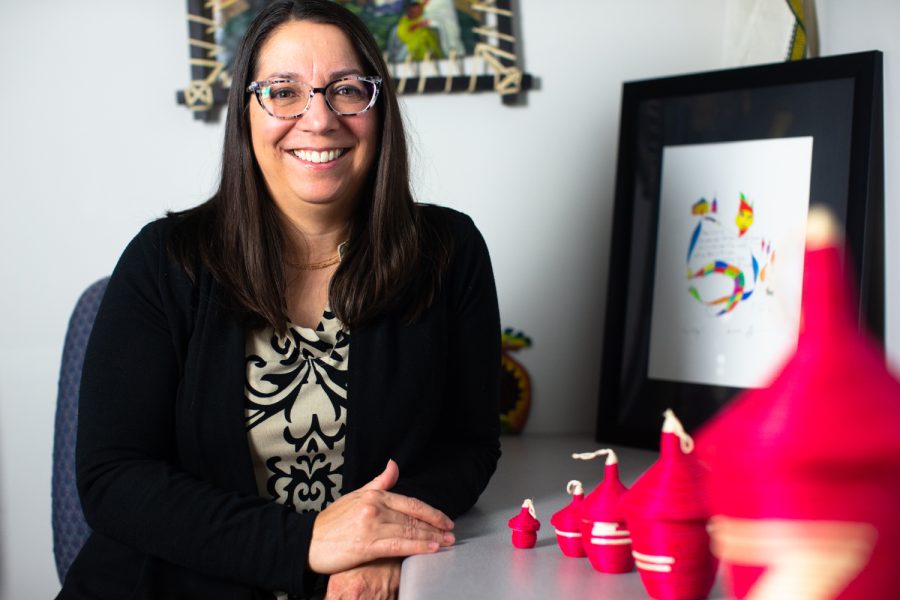Education for Employment, UI collaborate to train Saudi women in business
The University of Iowa and Education for Employment are partnering to launch a project that provides demand-driven entrepreneurship training to 50 Saudi women.
Assistant Director and Grant Administrator for the Institute for International Business Kelly Bedeian poses for a portrait in her office at the Pappajohn Business Building on Monday, Nov. 29, 2021.
November 30, 2021
Women from Saudi Arabia will have the opportunity to learn entrepreneurship skills as part of the country’s efforts to diversify its economy with the help from the University of Iowa Tippie College of Business.
Tippie is partnering with the U.S. Consulate General in Jeddah and Education for Employment, an international nonprofit based in Washington, D.C. aimed to empower youth in the Middle East and North Africa through employment programs and training.
The organizations will launch a one-year project aimed to provide entrepreneurship training to women in Saudi Arabia. The project is in line with Saudi Vision 2030 goals to diversify and grow the Saudi economy.
The U.S. Department of State-funded project will provide 50 women in the western region of Saudi Arabia with professional training and connections with successful Saudi women and U.S. women mentors in business fields where Saudi women are traditionally underrepresented.
“Saudi Arabia has been successful on the international market and is successful in business, but women often have played a lesser role in that success,” said Kelly Bedeian, assistant director and grants administrator for the UI Institute of International Business in the business school.
Bedeian said fields in which women are underrepresented in Saudi Arabia include logistics, construction, real estate, technology, culinary arts, and entertainment.
Dimy Doresca, director of the UI Institute for International Business, said the institute partnered with Education for Employment after the U.S. Consulate in Jeddah launched a request for proposals asking institutions to bid on a program to train Saudi women in entrepreneurship.
The UI will work on the “train the trainer” section of the project, Bedeian said.
“The University of Iowa team will be specifically working with eight female Saudi trainers,” Bedeian said. “We’ll be training them on curriculum, and then those trainers will be going out and training 50 other Saudi women.”
Amr Abdallah, director of Gulf Programs at Education for Employment, said the organizations are about two months into the process of looking for trainers for the program, and the trainers will travel to Saudi Arabia between April and May 2022.
“[The project is] going to teach young Saudi women new techniques to start their businesses, stay in business, look at emerging sectors like fintech, technology, e-commerce, and particularly empower young women to get into these sectors,” Abdallah said.
The Saudi women will participate in Venture School International, an entrepreneurship program designed to guide students through the process of identifying a market need and building a business to meet it.
In a press release, Doresca said the Western Saudi Arabia Venture School for Women project will, with the guidance of Iowa professionals, train aspiring entrepreneurs on the process of starting a business through methods that encourage innovation.
Bedeian said a driver for the collaboration was in part due to Institute for International Business’s past global outreach work, in countries like Kazakhstan and Kenya, aimed to support entrepreneurial success in developing countries.
“The overarching goal is to train and empower women in western Saudi Arabia so that they can become drivers of economic and social success within their communities,” Bedeian said.














